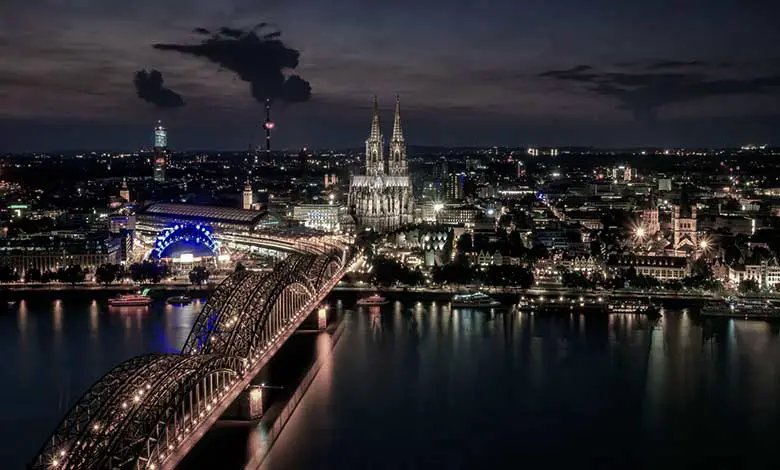
Europe is a beautiful place with a lot of history that affected almost every part of the world in one way or the other. There is no denying that the European nations conquered many lands and became colonial empires. Therefore, some might say that Europe developed faster than the rest. But how did they do it back then? Let’s clarify that.
Why Europe developed faster?
Europe wasn’t always the advanced powerhouse we know today, and its golden age in China was far ahead of the water in Europe until the 16th century. At that point, China was also wealthier than Europe. The Islamic civilizations in the Age of Islam created many groundbreaking concepts about everything.
It seemed impossible that the Europeans would catch up independently at that time. For a long time, the Chinese ships were the best, and they used to explore places around the Indian Ocean and trade with them. In the early 1400s, China was destroyed. Europe as a competing colonizer.
If it had decided to colonize in the first place during the Ming Dynasty, the Emperor would have been more interested in using its fleets to trade and collect tributes to the so-called treasure. Fleets comprised giant ships that could carry many men and goods.
However, the fleets were dismantled, and the following Ming emperors focused on building the Great Wall and installing the military to face the Mongol threat in the North. To understand why some civilizations do better, let’s look at some factors that improve early development.
Geography: Some theories point to Europe’s geography as a key factor. Navigable rivers crisscross the continent and have a long coastline with many natural harbors, facilitating trade and exchanging ideas.
Political Fragmentation: Europe has historically been divided into many small, competitive states. This competition spurred technological innovation and progress. The political fragmentation also meant that if one state began to infringe upon the freedom of its residents, they could move to a different state, creating competition for citizens.
Legal and Social Systems: Some argue that developing certain legal and social structures in Europe, such as the rule of law, property rights, and social pluralism, encouraged economic development by providing stability and protection for citizens and businesses.
Scientific Progress: The Scientific Revolution, which began in Europe in the 16th century, led to dramatic advances in knowledge and technology. The Enlightenment further encouraged the spread of these ideas by promoting reason, skepticism, and questioning established beliefs.
Colonialism and Imperialism: Europe’s development was also greatly facilitated by its exploitation of other parts of the world through colonialism and imperialism. These practices allowed European nations to acquire vast wealth and resources at the expense of other societies.
Climate
Eurasia is wide. The climate in these latitudes is perfect for agriculture. The farmer can easily cultivate high-protein crops like wheat and barley. Looking at the two continents, you will notice that they all go north or south, crossing several climate zones.
It cannot spread far from where a culture successfully domesticates an animal or a plant. The different climate zones that must be crossed would explain why most great empires are longer than tall.
Domestication
Eurasia had more plants and animals that were suitable for domestication. Cows, sheep, goats, pigs, chickens, and horses are native to the continent. These animals can be used for various purposes. African America had lots of dangerous animals but barely any useful ones.
- There weren’t any dangerous animals in Europe.
They were less common and not a significant threat.
Civilization
Europe and Asia are one continent that could have gone from Venice to Beijing using the Silk Road and that would have trading routes across the Eurasian continent. So Europe was connected to the Middle East and Asia and could learn from their thriving civilizations. People from Africa would have had to traverse the deadly barrier, also known as the Sahara Desert, to a point where it wasn’t worth it.
One thing that people seem to forget about European history is the Mongols. They had a big impact on Europe that should not be overlooked. The Mongols devastated Eastern Europe. Their armies sparked terror as they pillaged cities and raped the women. Also, they conquered Poland, Hungary, and Croatia, and it could have kept going.
Inventions
Even though the Mongols were mainly interested in brutally conquering everything, they were also interested in acquiring knowledge. The technology transfer had begun, and everyone was getting to know each other’s achievements and inventions. The Silk Road traveled across Asia into Europe via gunpowder cannons and papermaking.
Europe consisted of small nations and states interested in beating each other in science, commerce, and sometimes naval power. It resulted in constant competition, which led to innovation, advancement, and war. This situation encouraged great thinkers and explorers to go new ways and invent new things.
The competition between the European empires came to a whole new level. Everyone took as much as they could, and we all know what happened from there. European influence spread as they colonized more territory and enslaved the local population. Even the Chinese couldn’t escape Europe.
Learn more:
A Brief History Of Industrial Revolution By Timeline
Why Does Europe Not Build Skyscrapers?
References:
Mikaela Gavas. Financing European development cooperation: the Financial Perspectives.
A financial analysis of the proposed 11th European Development Fund (ECDPM Briefing Note 29). Maastricht: European Centre for Development Policy Management (ECDPM)
Analysis of the EU’s State Building Contracts – ECDPM.
Blending Loans Grants Development Effective Mix EU?
European Development Fund (EDF). European Commission.
“Europe.” Encyclopædia Britannica.
Table of Contents
